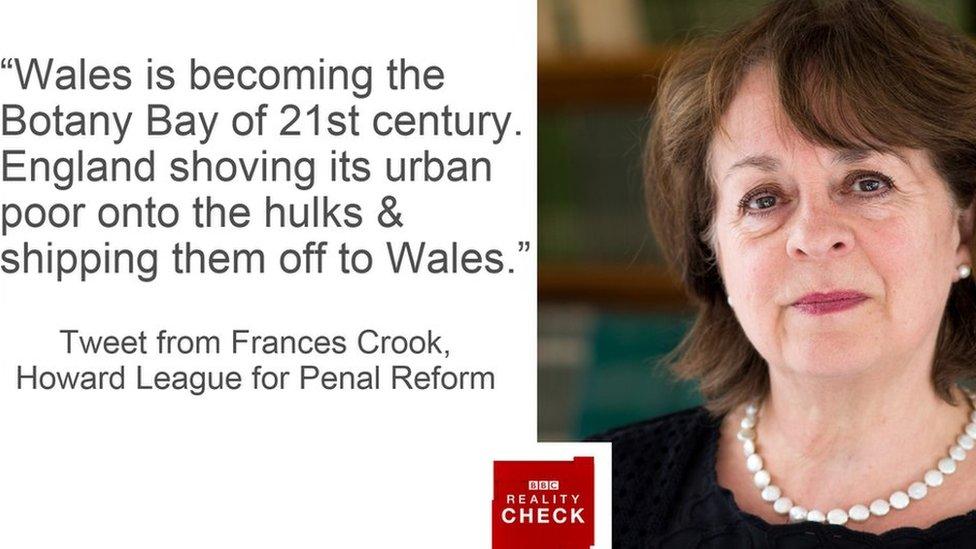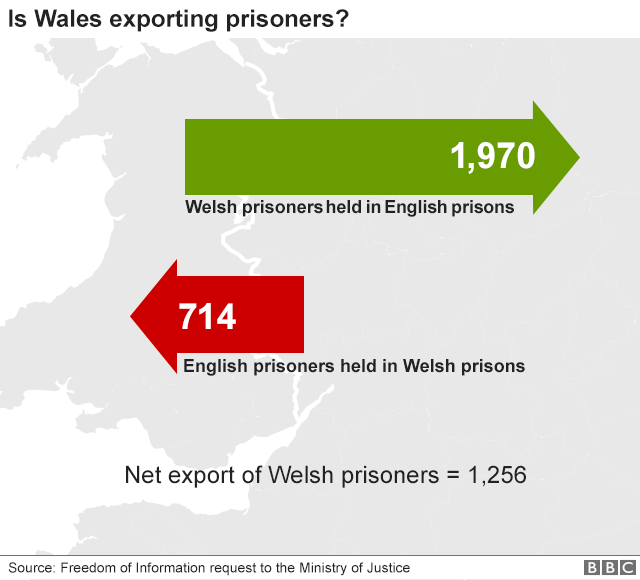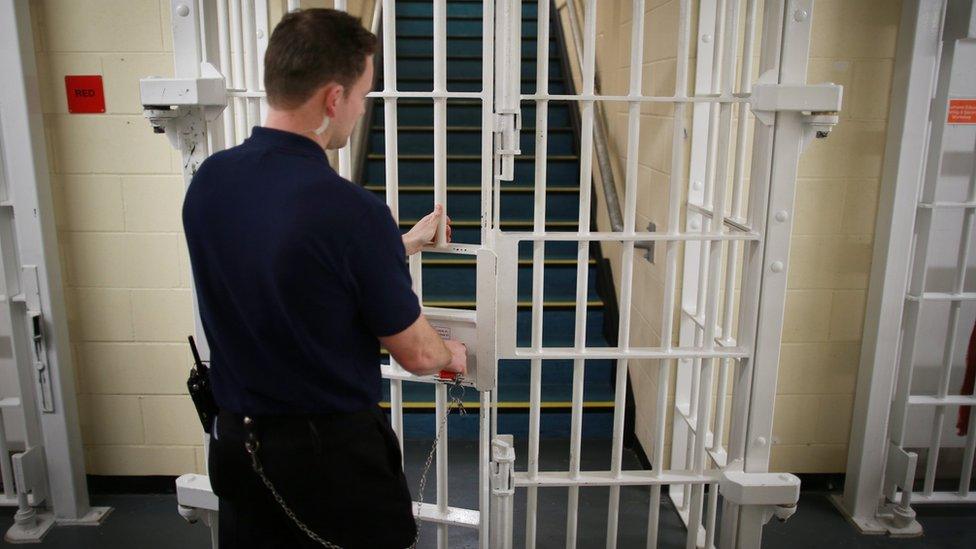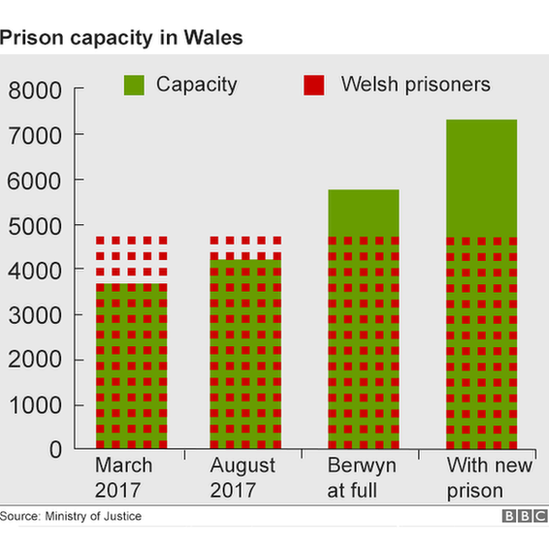Welsh prisons: Is Wales becoming the new Botany Bay?
- Published

The claim: Frances Crook, chief executive of the Howard League for Penal Reform, tweeted this week: "Wales is becoming the Botany Bay of 21st century. England shoving its urban poor onto the hulks & shipping them off to Wales." It follows the UK government announcement of plans to build a new prison in south Wales.
Reality Check verdict: In March of this year, figures show more Welsh prisoners were held in England than English prisoners in Wales. But if you look at plans to expand prison capacity in Wales this could be reversed in future.
The most up-to-date figures I could get my hands on show there were 4,787 Welsh prisoners in March 2017. By Welsh prisoner I mean the prisoner gave an address in Wales.
1,970 of these prisoners were serving their sentence in England.
By comparison, there were 714 English prisoners (home address in England) in Welsh jails.

So, if you look at it in terms of the export and import of prisoners between Wales and England, there was a net export of 1,256 prisoners from Wales to England. Hardly Botany Bay, where Britain set up a penal colony in the 18th century.

British convicts were shipped to Botany Bay, Australia in the 18th and 19th centuries
Take note…
Before we go on, it's worth noting that prisons are not devolved, so Her Majesty's Prison and Probation Service, external operates across England and Wales.
This means that, in theory, all the prisons could be in Wales, or indeed, in England. It's one administrative area.
It also means that prisoners are not usually classified as English or Welsh by the Ministry of Justice, external (MoJ). However, it is possible to designate a prisoner as Welsh or English by their stated address and to request this data from the MoJ in the form of a "Freedom of Information, external" (FOI) request.
Indeed, the figures given above for March 2017, come from an FOI request made by the Wales Governance Centre at Cardiff University.

Space available versus numbers of prisoners
But these figures don't tell the whole story.
Another way of testing the Botany Bay claim is to look at whether there are more spaces available in Welsh prisons than Welsh prisoners.
Again, it's worth noting that some prisoners, including women and category A prisoners, simply can't be housed in Wales at all because there are no facilities for them. So there is always likely to be some "exchange".
None the less, in simple numbers, in March 2017 Welsh prisons had operational capacity for 3,750 people. With a total of 4,787 Welsh prisoners, there were more prisoners than space. No wonder so many were held in England - there was nowhere else to go.
Prison capacity in Wales grows
Now, with the help of this graph, let's look at what has happened since March and what could happen in the future.

By August this year, the operational capacity of Welsh prisons grew to 4,195, mainly due to the opening, in February, of Berwyn prison in north Wales.
And if Berwyn were full - it currently holds only a quarter of a possible 2,100 prisoners - that would bring the overall capacity of prisons in Wales up to 5,731.
Let's compare that figure with the latest - and only - figure we have for the total number of Welsh prisoners from March 2017 - 4,787.
That still means there may be 944 spaces available in Welsh prisons than there are Welsh prisoners. They could be filled by English prisoners.
What happens if another prison is built in Wales?
Let's take this one step further. We also know the UK government plans to build a new prison in south Wales - plans which have met resistance from residents, Plaid Cymru and the Howard League for Penal Reform.

Baglan, Port Talbot, is a potential site for a new prison in south Wales
Both the location and size of the jail are yet to be announced, but it's likely to be built in Port Talbot and I understand it will have space for up to 1,600 prisoners.
If that figure is right, there could be 2,544 more spaces available for prisoners in Wales than there are Welsh prisoners.
There is some speculation that one of the Victorian prisons in either Cardiff or Swansea could close, and the land sold to developers. Even so, at most this would drop capacity by around 800.
The MoJ says all this is speculation. It claims it is investing £1.3bn in the "prison estate" and Wales could benefit through the creation of "up to 500 jobs and contributing £11m a year to the regional economy."
But by our basic calculations - space available versus Welsh prisoner numbers - it looks like at the moment Wales is not taking an unfair share of the burden when it comes to housing English and Welsh prisoners, but it certainly could be in the future.


